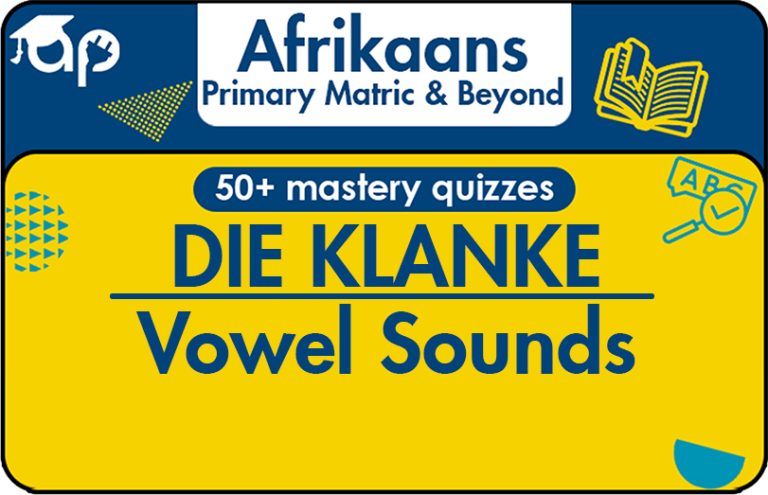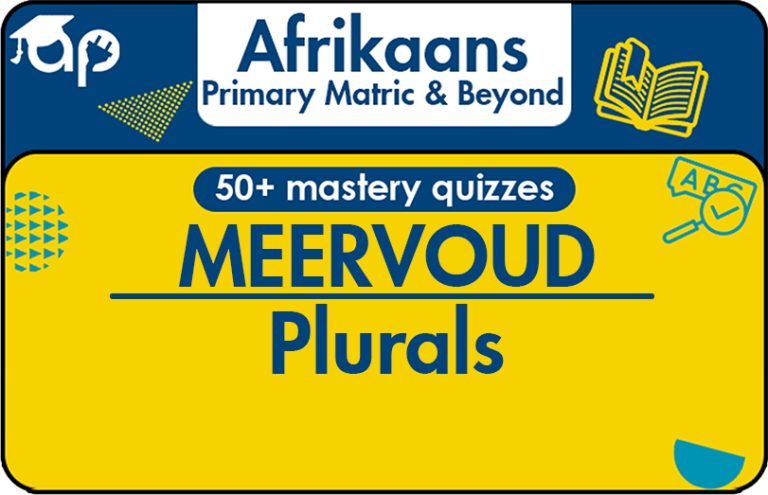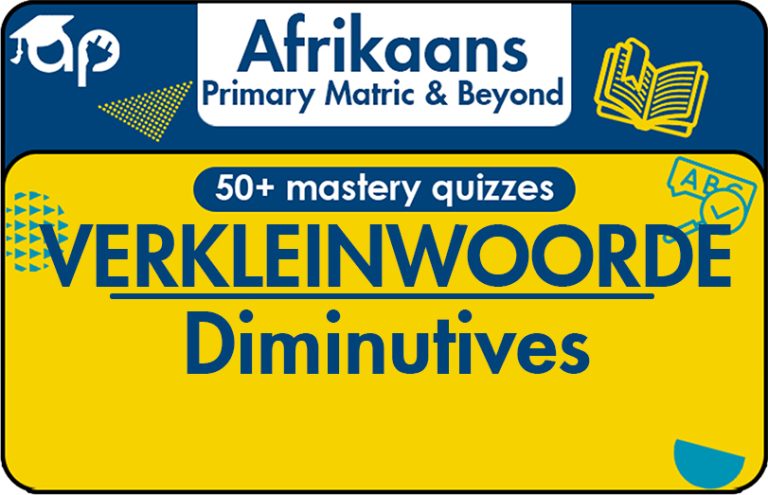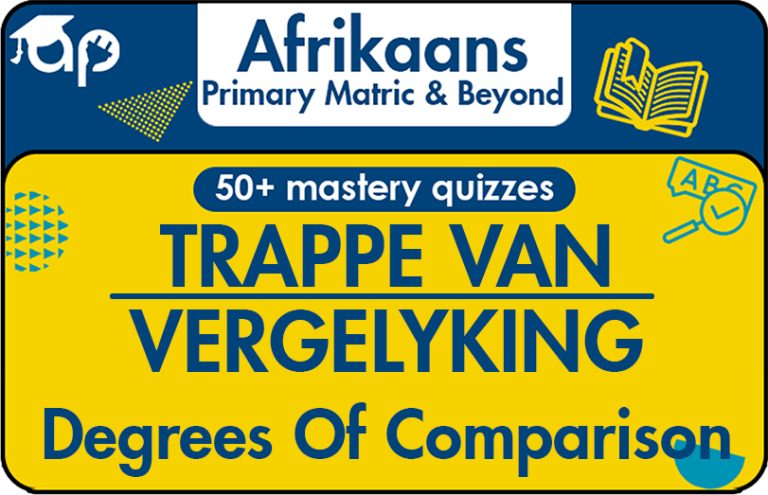LEESTEKENS: Learn About Punctuation In Afrikaans Language
- February 2, 2025
- Posted by: admin
- Category: Afrikaans
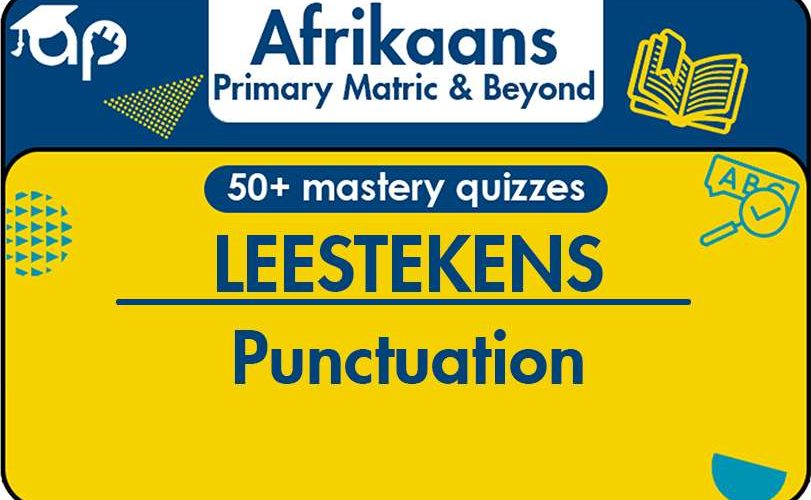
In this page you will learn about LEESTEKENS/Punctuation, a Afrikaans learning topic that is also a recommended learning topic for students in Primary to Matric and Beyond.
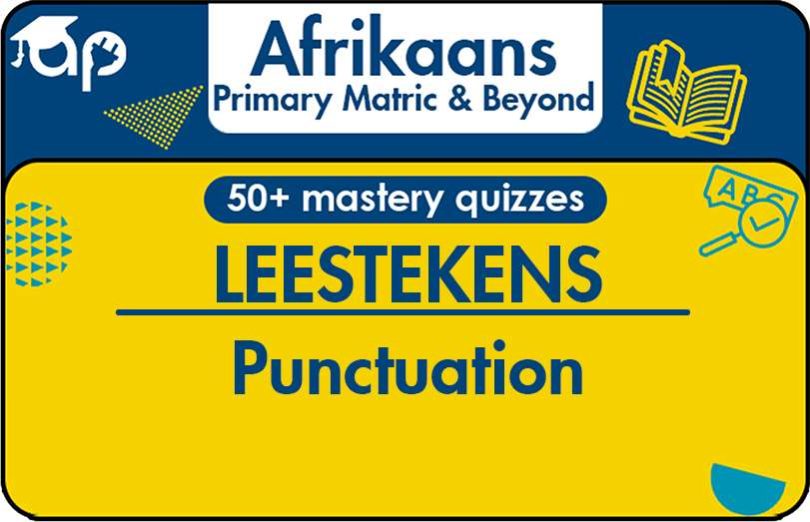
About LEESTEKENS/Punctuation
In these notes you are going to be able to learn about LEESTEKENS/Punctuation as you go through notes and exercises to help you practice calculating and solving relevant questions. Make sure to go through all the notes, questions and answers and also complete the Mastery Quizzes so that you can deepen your understanding and master this topic.
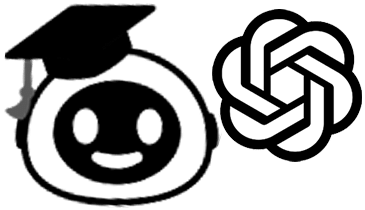 Study And Practice with AI!
Study And Practice with AI!
Plug Bot is an AI you can ask questions as you go through these notes, it is programmed with math curriculum content and it can further your understanding about LEESTEKENS/Punctuation.
| ABC | hoofletters (capital letters) |
Sinne begin met hoofletters. Jan en Marie gaan in Februarie Pretoria toe.
|
| . | punt (full stop) |
Ons vind ‘n punt aan die einde van ‘n sin.
|
| , | komma (comma) |
Sy het brood, botter, melk en eiers gekoop.
|
| ( ) | hakies (brackets) |
Dit was ‘n spook (of so het sy gedink!)
|
| ? | vraagteken (question mark) |
Hoeveel kinders is in jou klas?
|
| ! | uitroepteken (exlamation mark) |
Eina! Die by het my gesteek.
|
| ; | kommapunt (semi-colon) |
Hy swem in die somer; hy speel rugby in die winter.
|
| : | dubbelpunt (colon) |
Jy het die volgende nodig: papier, potlood en uitveër.
|
| – | aandagstreep (dash) |
Dit was ‘n spook – of so het hy gedink!
|
| * | asterisk (asterisk) |
Hy woon op die hv.* Kerk en Pritchardstraat. (*hoek van)
|
| … | stippels (ellipse) | Word vervolg… |
| ” “ ‘ ‘ |
aanhalingstekens (inverted commas / quotation marks) |
Moeder se: “Kinders, julle moet gaan slaap.”
|
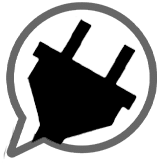 Want To Master LEESTEKENS/Punctuation?
Want To Master LEESTEKENS/Punctuation?
Sign up for free and complete the Mastery Quizzes with explained answers to deepen your understanding of this topic.
WE FOLLOW THE SAME RULES AS IN ENGLISH, WITH THE FOLLOWING EXCEPTIONS:
1. We put a colon (:) instead of a comma before Direct Speech.
2. We use commas before the following Group 1 Conjunctions: ,maar ,want and ,dog.
3. We use a semi-colon (;) before all Group 2 Conjunctions: ;dus ;daarna and ;nogtans. However, the following Group 2 Conjunctions get a comma: ,al ,dan and Joe.
![]()
Try to understand the sentence in English before you punctuate it.
They are also testing your vocabulary, by seeing whether you can divide the sentence correctly.
USE OF THE DASH (DIE KOPPELTEKEN)
This is important for spelling purposes.*
- Compound words – when the first word ends in a vowel and the second word begins with a vowel
twee-uur, sewe-uur, perde-eienaar - Repetitions (verdubbeling/herhalings) gou-gou, kort-kort; sukkel-su kkel
- Compound titles (saamgestelde titels)
luitenant-generaal; oud-president - Compound words that are joined with an ‘en’ die haak-en-steek plant kaas-en-tamatietoebroodjie
- –huile (and them/those associated with them) Marie-hulle; my tante-hulle; my vriendin-hulle
- Words indicating direction
Suid-Afrika; Pretoria-Wes
 Need a Math tutor?
Need a Math tutor?
Start by joining our free sessions with professional math tutors, conducted entirely online for your convenience. Whether you’re at home or on the go, you won’t miss a thing our lessons are live and also recorded for easy access anytime. Plus, students can enquire with our tutors 24/7 for additional support.
 Also get 100% on your exam essays!
Also get 100% on your exam essays!
Our essay cramming assistant is useful if you want to cram essays for subjects such as Business Studies, Economics, Geography, History, Home Languages, First Additional Languages and more…


